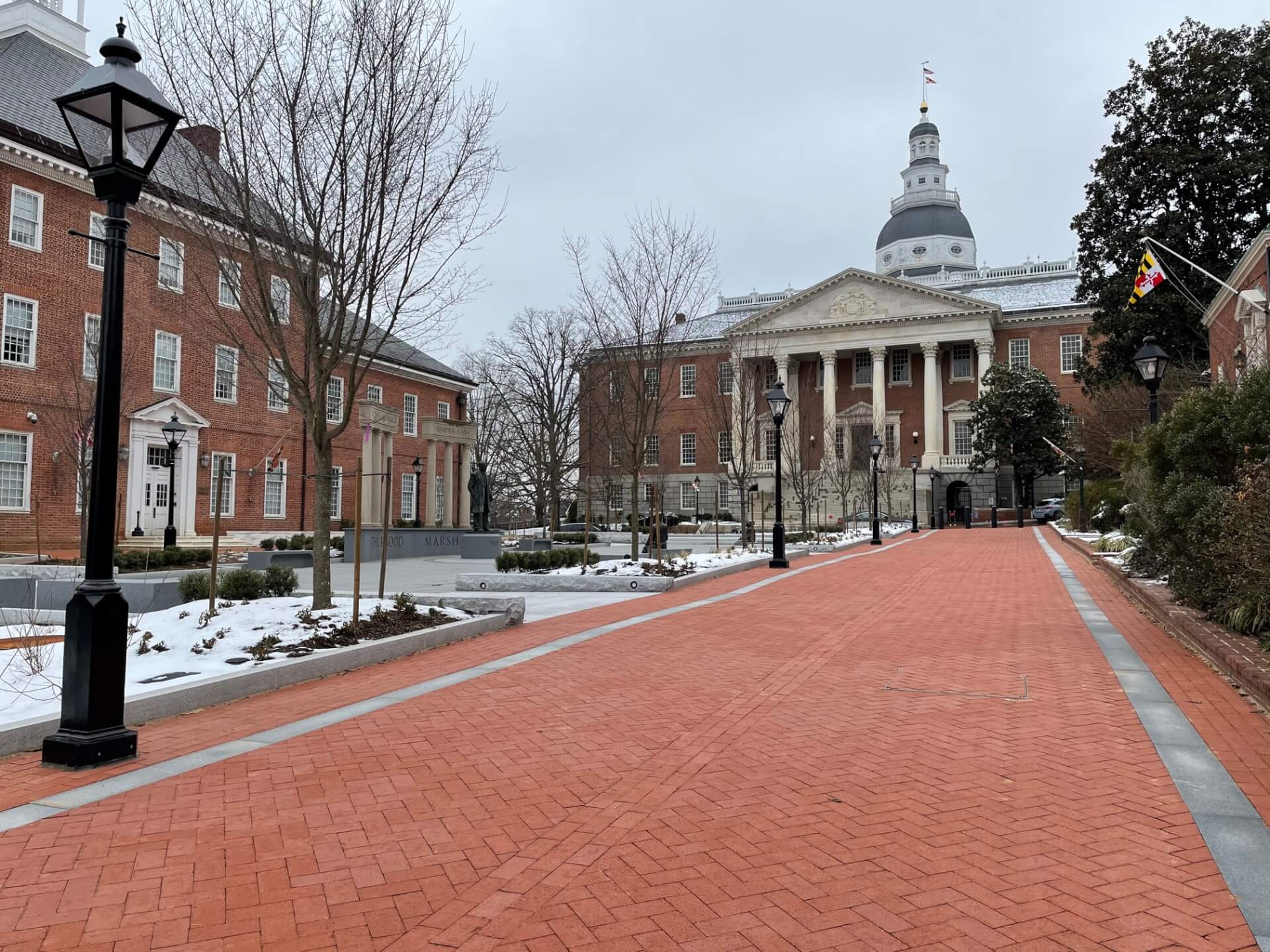Bill Would Boost Disclosure Requirements for 2022 Candidates — and Hogan

The Maryland General Assembly is moving forward with an ethics bill that would broaden the disclosures that candidates for statewide office would be required to make regarding their business dealings.
The measure would also require enhanced disclosures from the current “big 5” — the governor, lieutenant governor, comptroller, attorney general and treasurer — to be filed next year.
As such, it has the potential to revive discussion about Gov. Lawrence J. Hogan Jr.’s sprawling real estate business, which was briefly a focus of scrutiny last year, just prior to the pandemic.
House Bill 1058, dubbed the Integrity in High Office Act by its sponsor, would add a new set of disclosures in time for the 2022 elections, when all statewide posts will be on the ballot.
If it passes, statewide officials and candidates for those positions would be required to disclose to the State Ethics Commission not just the businesses they own outright, but also the subsidiaries, affiliated entities and limited liability corporations in which they own a partial share.
“It basically lowers the ownership threshold that you need to have in a business before you disclose it,” said Del. Vaughn Stewart (D-Montgomery), the bill’s sponsor.
The measure would also require that an official or candidate disclose all the names a business uses.
The Integrity in High Office Act passed the House of Delegates unanimously, 138-0, on March 18. The Senate Education, Health and Environmental Affairs Committee is scheduled to hold a hearing on the measure on Thursday.
In an interview, Stewart insisted that the legislation is not aimed at Hogan, who is term-limited and set to leave office in January 2023.
Rather, he said, it’s designed to shed a bit more daylight on the private dealings of public officials, by requiring that agreements that they enter into with the Ethics Commission be shared with the legislature’s Joint Ethics Committee.
“If those [disclosures and agreements] remain secretly-housed in the Ethics Commission, it really limits the legislature’s ability to maneuver around those conflicts,” Stewart said.
Hogan entered into an agreement with the ethics commission shortly after he took office.
It does not require a blind trust, which ethics experts view to be the gold standard for avoiding conflicts.
Rather, he was allowed to establish a trust run by three of his employees and have his brother Timothy take over the running of the HOGAN company.
It also allowed the governor to remain apprised of his firms’ actions, provided he did not participate in them.
An investigation in Washington Monthly last year raised issues about tens of millions of dollars in transportation projects that the state Department of Transportation funded in Prince George’s and Kent counties after Hogan took office.
Lawmakers, including Senate President Bill Ferguson (D-Baltimore City), told the publication they were unaware of the HOGAN company’s stake in nearby developments when they approved MDOT’s budget.
The agreement that the governor entered into with the Maryland Ethics Commission in 2015 has never been made public. But if Stewart’s bill becomes law, its requirements could provide an interesting — if belated — peak into HOGAN the enterprise.
Hogan declined to be interviewed for the Washington Monthly article, but through a spokesman, he denied any involvement in the decision to fund the projects. Administration officials called Hogan’s agreement with the commission robust.
Experts in budget-crafting scoffed at the assertion that Hogan didn’t know what was in his own budget — and the extent to which state-funded transportation improvements could add value to HOGAN’s portfolio or projects in the pipeline.
Stewart said last year’s bill died because his colleagues viewed it as partisan — a “gotcha” measure in the wake of the Washington Monthly story.
So this year he added a provision requiring that lawmakers who serve on quasi-governmental bodies, like the University of Maryland Medical System board, disclose their business dealings in more detail.
Such a provision, he said, would have brought to light the arrangement that former Baltimore Mayor Catherine E. Pugh had with the UMMS board of directors. Pugh, who began serving on the panel while she was a state legislator, arranged for the system to buy thousands of copies of a children’s book she authored.
Many of the copies she “sold” were never actually printed, and she is now serving a prison term for fraud.
When Stewart added the UMMS provision to his bill, it sailed though the House unanimously. It is expected to be viewed favorably in the Senate.
Public Citizen, a Washington, D.C.-based watchdog organization, filed a complaint against Hogan with the ethics commission on February 19, 2020, after the Washington Monthly story hit news stands.
The complaint alleged that the governor’s budget decision-making “enhanced the development value of several parcels of land that he and the HOGAN company accumulated in the immediate vicinity of the new State transportation project.”
“Contrary to the law and explicit written guidance from the State Ethics Commission,” the complaint continued, “Governor Hogan directly participated in making a major change in the 2015-2020 Capital Transportation Program and related 2015 transportation budget that benefited his own personal financial interests, i.e. expediting construction and designating $58.2 million in new funding for an interchange and park-and-ride lot in Brandywine, Maryland.”
Michael Ricci, a Hogan spokesman, said on Monday that the administration has recently unearthed a memo “showing Brandywine was recommended to be advanced to the next phase in 2014,” when Martin J. O’Malley (D) was governor.
Craig Holman, a government affairs lobbyist with the organization, said he was told that formal consideration of the complaint was delayed due to the initial outbreak of the pandemic, during the transition to online operations.
“However, I have not since been notified as to whether formal consideration has resumed nor of any action on the complaint taken by the Commission,” he wrote.




 Creative Commons Attribution
Creative Commons Attribution